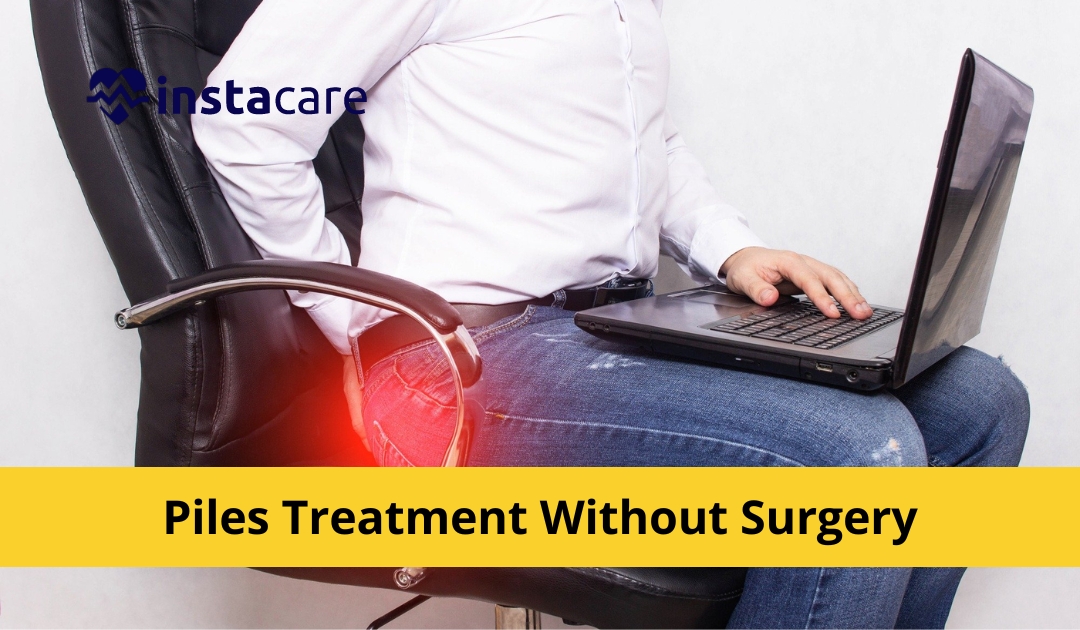Piles, also known as hemorrhoids, are swollen and inflamed veins also in the rectum and anus that can cause discomfort and pain. While medical intervention may be necessary for severe cases, mild to moderate piles can often be managed effectively with home remedies. In this article, we will also explore various home remedies and also lifestyle changes that can help alleviate the symptoms of piles and promote healing.
Understanding Piles
Piles can be classified into two types: internal and external. Internal piles inside the rectum are usually painless but may cause bleeding. On the other hand, external piles are located outside the anus and can be painful and itchy. The most also common causes of piles include chronic constipation, straining during bowel movements, a sedentary lifestyle, and pregnancy.
1- High-Fiber Diet And Hydration
A high-fiber diet is crucial in managing and preventing piles. Fiber adds bulk to the stool, also making it easier to pass without straining. Include plenty of fruits, vegetables, also whole grains, and legumes. Additionally, drink adequate water throughout the day to keep yourself hydrated, as dehydration can contribute to constipation.
2- Sitz Baths
Sitz baths are warm water baths that relieve pain, itching, and inflammation associated with piles. Fill a shallow tub or basin with warm water and also sit in it for 10 to 15 minutes. Repeat these two to three times a day for maximum benefits. Adding Epsom salts or a few drops of witch hazel to the water can provide additional soothing effects.
3- Proper Toilet Habits
Maintaining proper toilet habits is essential for managing piles. Avoid straining or forcing bowel movements. Instead, allow them to occur naturally. Take your time on the toilet and avoid sitting for prolonged periods. If necessary, use a footstool or a squatty potty to elevate your feet, which can help maintain a more natural position for bowel movements.
4- Over-The-Counter Ointments And Creams
Over-the-counter ointments and creams can temporarily relieve pain, itching, and swelling caused by piles. Look for products also that contain ingredients like hydrocortisone, witch hazel, or aloe vera. Apply the ointment or cream to the affected area as directed by the package instructions. However, please consult a healthcare professional before using any medication to ensure it suits your condition.
5- Cold Compresses
Applying cold compresses to also the affected area can help reduce swelling also and relieve pain and discomfort. Wrap a few ice cubes also in a clean cloth or use a cold gel pack and apply it directly to the piles for 10 to 15 minutes at a time. Repeat this several also times a day, as needed. Ensure that the cold compress is not in direct contact with the skin also indeed to avoid frostbite.
View More: Various Symptoms of Piles in Females You Need To Know
6- Physical Activity And Exercise
Regular physical activity and also exercise can help prevent and manage piles by improving bowel movements and reducing the risk of constipation. Engage in walking, swimming, or cycling for at least 30 minutes daily. These exercises promote better blood circulation, which can aid in reducing inflammation and promoting healing.
7- Herbal Remedies
Several herbal remedies are believed to have beneficial effects on piles. Witch hazel, for example, has astringent properties that can help reduce swelling and itching. Apply witch hazel extract to a clean cotton pad and gently dab also it on the affected area. Aloe vera gel, known for also its soothing properties, can also be applied topically for relief.
8- Good Toilet Hygiene
Maintaining good toilet hygiene is essential for managing piles and preventing infection. After bowel movements, gently clean the anal area with mild, unscented wipes or plain water. Avoid using harsh soaps or also scented products that may irritate the area. Pat dry with a soft towel, indeed, or use a hairdryer also in a relaxed setting to avoid excessive rubbing.
9- Stress Management
Stress and anxiety can also worsen the symptoms of piles. Practice stress management techniques also, such as deep breathing exercises, meditation, or yoga, to promote relaxation and reduce stress levels. Adequate sleep and regular relaxation techniques can also contribute to overall well-being and help alleviate piles symptoms.
10- Avoid Trigger Foods
Certain foods can exacerbate piles symptoms or contribute to constipation. It is advisable also to avoid or limit the consumption of spicy foods, caffeine, alcohol, processed foods, and foods high in refined sugars. Instead, opt for a balanced diet rich in fiber and nutrients to maintain healthy bowel movements.
When To Seek Medical Advice
While home remedies can provide relief for mild to moderate
piles, it is essential to consult a healthcare professional if:
The symptoms persist or worsen despite home remedies.
- There is excessive bleeding, or the bleeding is persistent.
- The pain becomes severe and also is accompanied by fever or
discharge.
- Piles are interfering with daily activities or affecting
your quality of life.
A healthcare professional can assess the severity of your condition and provide appropriate medical advice or interventions.
Conclusion
While piles can be uncomfortable and distressing, home
remedies and lifestyle changes can effectively manage many cases. However, if
symptoms persist or worsen, seeking medical advice for a proper diagnosis and
appropriate treatment is essential. Remember to consult a healthcare
professional also before starting any new treatment or remedy to ensure it
suits your condition.
Please book an appointment with the Best General Physician in Lahore, Karachi, Islamabad, and all major cities of Pakistan through InstaCare, or call our helpline at 03171777509 to find a verified doctor for your disease.


